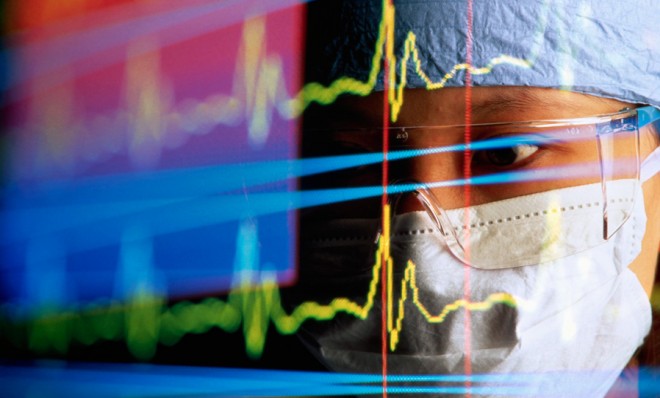How an Australian hospital is bringing clinically dead people back to life
Resurrection may no longer be the stuff of myth


A free daily email with the biggest news stories of the day – and the best features from TheWeek.com
You are now subscribed
Your newsletter sign-up was successful
Doctors at the Alfred Hospital in Melbourne have a knack for resurrection. Thanks to a combination of two resuscitation techniques, the Australian team has successfully revived three patients who were officially dead for between 40 and 60 minutes.
One of those patients was 39-year-old Colin Fielder, who suffered a heart attack last year. While being whisked away in the ambulance, he was asked which of the two nearby hospitals he preferred. "For some reason, I said the Alfred, which is pretty lucky because they are the only one that has it," Fielder said.
"It" is the AutoPulse, a portable CPR machine that performs constant chest compressions that essentially keep the heart beating. What makes the AutoPulse unique is that instead of pistons pressing and lifting only one part of the sternum, the AutoPulse uses a band that wraps around and squeezes the entire chest. (See a video of the machine in action below.) As a result, "victims receive more consistent, high-quality compressions… which means improved blood flow," according to the manufacturer's website.
The Week
Escape your echo chamber. Get the facts behind the news, plus analysis from multiple perspectives.

Sign up for The Week's Free Newsletters
From our morning news briefing to a weekly Good News Newsletter, get the best of The Week delivered directly to your inbox.
From our morning news briefing to a weekly Good News Newsletter, get the best of The Week delivered directly to your inbox.
In addition to the AutoPulse, the Alfred doctors also used a technique on Fielder called extracorporeal membrane oxygenation (ECMO) — it's essentially an artificial lung outside the body that keeps oxygen and blood flowing to the patient's brain and vital organs. ECMOs have been used in the past for lung transplant recipients as well as extremely ill newborns. But it is this combination of ECMOs and the AutoPulse, currently in clinical trials at the Alfred, that has proved successful in reviving the dead.
The combination of the ECMO and AutoPulse helps to keep the body "living" while also giving doctors time to diagnose the heart attack's source and treat it. More time and care mean an increased chance of survival and ensure further research can be conducted on cardiac arrests — still the most common cause of death worldwide.
The Alfred has so far used these treatments on seven patients, three of whom survived without further complications despite being clinically dead for substantial amounts of time. If the trials can build on these early successes, other Australian hospitals may see the expanded role of the ECMO and the AutoPulse in their own facilities, officials say.
Now before you up and move to Australia, similar techniques have been used in the U.S in equally limited trials. Dr. Sam Parnia, head of intensive care at Stony Brook University Hospital in New York, has dedicated his career to bringing ill people back from the dead. His research has taught him that successful resuscitation comes by way of mechanical CPR combined with ECMO treatment. Parnia says these methods are not only straightforward and relatively cheap, but also could save up to an estimated 40,000 American lives per year. To help spread the word to doctors and patients alike, Parnia wrote a book earlier this year called The Lazarus Effect.
A free daily email with the biggest news stories of the day – and the best features from TheWeek.com
In the book, Parnia describes how Japan has already standardized the practice of using ECMO in emergency rooms. Siphoning the dead person's blood out of the body, into and through an external oxygenator, and back through the body has reportedly extended the time a person can be dead and brought back to life again by hours. Parnia tells The Guardian of one such miraculous instance:
"The longest I know of is a Japanese girl I mention in the book," Parnia says. "She had been dead for more than three hours. And she was resuscitated for six hours. Afterwards, she returned to life perfectly fine and has, I have been told, recently had a baby." [The Guardian]
Sources: American Heart Association, Daily Mail, EMS1.com, The Guardian, HHGN.com, U.S. National Library of Medicine, New York Presbyterian
Lauren Hansen produces The Week’s podcasts and videos and edits the photo blog, Captured. She also manages the production of the magazine's iPad app. A graduate of Kenyon College and Northwestern University, she previously worked at the BBC and Frontline. She knows a thing or two about pretty pictures and cute puppies, both of which she tweets about @mylaurenhansen.
